
Illness as a Dharma Door
© 2021 Susan M. Pollak, MTS, EdD
On a dark and frigid day in February 2020, we found out that my husband had a rare and deadly blood cancer. It could be treated but not cured. It was difficult to diagnose, and we initially thought it was just back pain. Everyone in mid-life has back pain, right? However, an MRI showed this was no usual pain—over ten bones in his spine had fractured due to the cancer, causing excruciating pain.
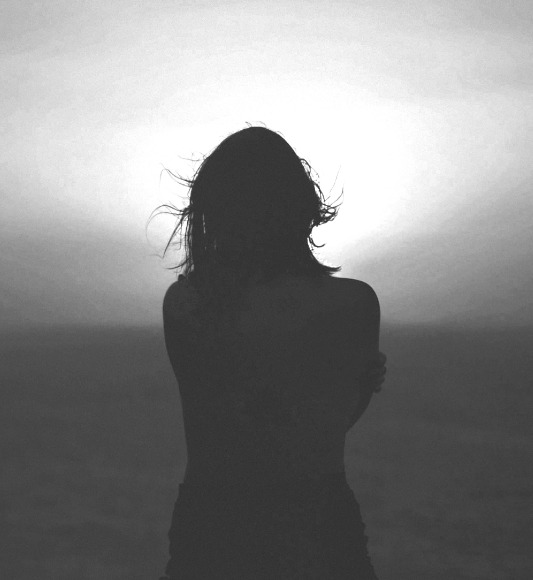 While there was a new procedure that could help, treating one fracture at a time over a period of months, Covid-19 had swept through the world, overwhelming the hospitals. Even in a city overflowing with medical care, this cancer treatment was suddenly not “essential.” We would need to wait and endure.
While there was a new procedure that could help, treating one fracture at a time over a period of months, Covid-19 had swept through the world, overwhelming the hospitals. Even in a city overflowing with medical care, this cancer treatment was suddenly not “essential.” We would need to wait and endure.
As support from family and friends dwindled due to Covid—no food, no hugs, no visits–like so many others I began to feel alone and overwhelmed. I had a steady meditation practice that sustained me over the years, but I longed for more. I wasn’t sleeping and I was feeling disoriented. I dreamed of finding a meditation master who understood the ravages of plagues, as impossible as that sounds.
An email arrived in my inbox from New York Zen Center for Contemplative Care announcing a deep dive into the writing of Eihei Dogen, a 13th century Zen Master, and the founder of Japanese Soto Zen. The class, called “Use All the Ingredients of Your Life” was taught by Zen teacher Koshin Paley Ellison. I’d always felt an affinity for Dogen, first learning about his teaching on “the backward step” from Trudy Goodman, founder of Insight LA. This teaching, which in essence is about stepping back from the chaos of daily life, had always given me a sense of relief and perspective, like the comfort of a wise elder. Dogen had lived through a plague. Could this class help? A line from W.H..Auden’s poem, Musee Des Beaux Arts, popped into my head, “About suffering they were never wrong, The old Masters.”
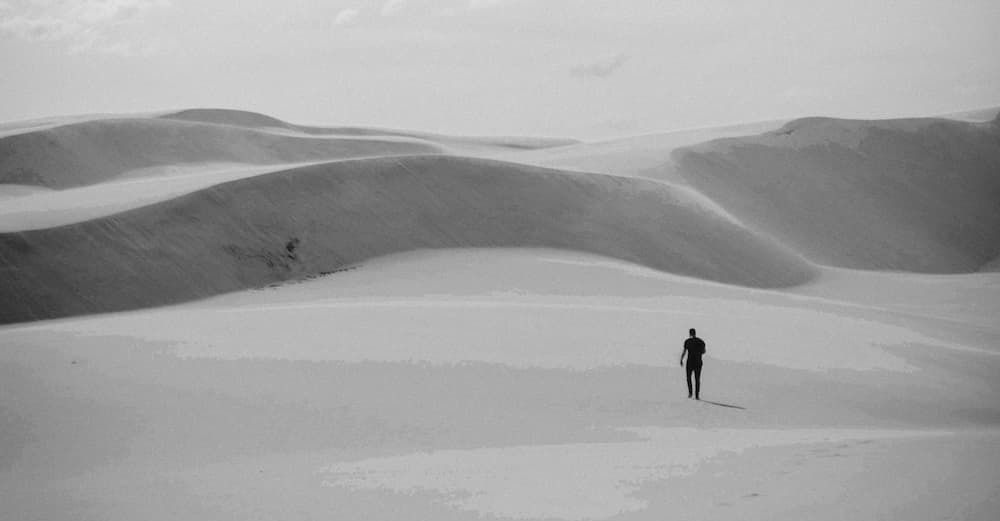
The irony of pushing the “Register” button on the computer screen didn’t escape me. But I did wonder, what could a medieval Zen monk impart as I tried to navigate this mind-boggling and dangerous maze of high-tech chemotherapy, skyscraper hospitals, and the medical complexity of a stem cell transplant?
Start Where You Are
The main text was the classic Tenzo Kyokun, “Instructions for the Zen Cook.” Being skeptical, I doubted how an instruction manual written in 1237 for male monastics was going to help a woman with two children and a seriously ill husband. But as I read with an open and somewhat desperate mind, I became intrigued both by how practical and grounded Dogen’s instructions were.
Because of Covid, I’d been cooking every meal from scratch: no restaurants, no take-out, no shopping or kitchen help. I was numb and exhausted. Without realizing it, I’d stopped really seeing the food, tasting it, or appreciating it. Just getting through the day was an accomplishment. Everything felt like a burden. A line in the text spoke gently to me: “Handle even a single leaf or green in such a way that it manifests the body of the Buddha. This in turn allows the Buddha to manifest through the leaf,” (p. 7).
That evening, as I juiced a lime, I marveled at the exquisite green of the skin and the sharp fragrance of the fruit. As I followed the instructions in a recipe for chopping lemongrass, there seemed to be deeper meaning: “Peel off the layers until smooth and tender. Cut off the tough, thick base.” I interpreted this as guidance on how to work skillfully with the hard, brittle defenses I had constructed to muscle through this fraught and anxious time. Maybe I could uncover the soft and vulnerable parts of my being that needed to be seen, heard and nourished. The tender ivory lemongrass glowed in the autumn light as I chopped. I paused. I breathed. I was seeing and smelling again. At least for that night, Dogen’s “Joyful Mind” permeated the previously tedious task of making dinner.
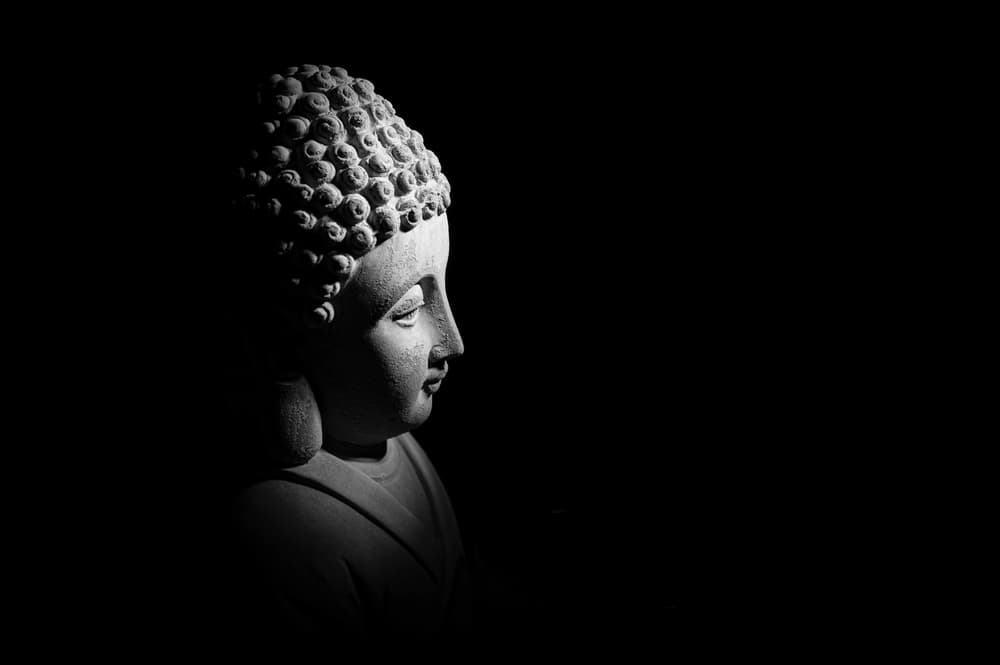
A Brilliant Developmental Psychologist
We often speak of the Buddha as the first Psychologist because of his insights into the nature of the mind. I’ve begun to think of Dogen as the first “Developmental Psychologist” because of his understanding of what “ingredients” we need to grow and mature. As someone who was trained both as a Clinical and Developmental Psychologist, I appreciated Dogen’s attention to our deep basic needs and guidance on how to work with them. As those who have raised children know, an infant needs almost constant feeding and care. With Dogen’s intuitive focus on caring and paying attention to food, and the importance of feeding each other and the community, he speaks to and attends to our deep and unmet hungers and need for nourishment. It is done in such a subtle and skillful way you could miss it. Most monks, of course, do not talk about parenting. Yet Dogen explicates the importance of having the mind and heart of a parent, or Roshin.
As I began to live these passages, I began to realize that Dogen was helping us reparent ourselves through zazen (or sitting meditation) so we can develop the resilience and spirt to handle the challenges of every aspect of life. We learn how to care for ourselves with love, and how to tend to and care for others, developing the affectionate concern that a parent has toward a child. “Zazen restores our vision”, (p.35) Dogen (2005) tells us. Step by step, grain of rice by grain of rice, we are given the skills to begin to “cook” or manage our personal lives. It is like being given a very practical toolbox, or perhaps I should say, a more functional set of cooking implements. Zen teacher and writer Edward Espe Brown (2019) puts it eloquently, noting that with Dogen’s collection of sound advice, [W]e can grow wise and compassionate rather than simply older, (p. xiv).
As I began to settle into the new but unwanted circumstances of my life, I stopped fighting so hard. Brown’s (2019) deep understanding of Dogen’s teaching provided further wisdom. “We cannot control what comes our way, so we find out how to work with what comes: ingredients, body, mind, feelings, thoughts, time…” (xv).
I began to realize that this text was in fact a training of mind and heart. I thought of Jane Hirshfield’s poem “A Cedary Fragrance” where she writes about her years of study at the Tassajara Zen Center, and how, years later, she still chooses to wash her face with cold water:

It felt like a path of learning to “co-habit” with serious illness began to open for me.
The Biggest Delusion
About thirty years ago, I attended a public lecture given by the meditation teacher Joseph Goldstein. Although I was young and was still in school, his words were arresting: “The biggest delusion we have,” Joseph said, “is that we won’t age, we won’t grow ill, and we won’t die.” I have not forgotten the wisdom of this message.
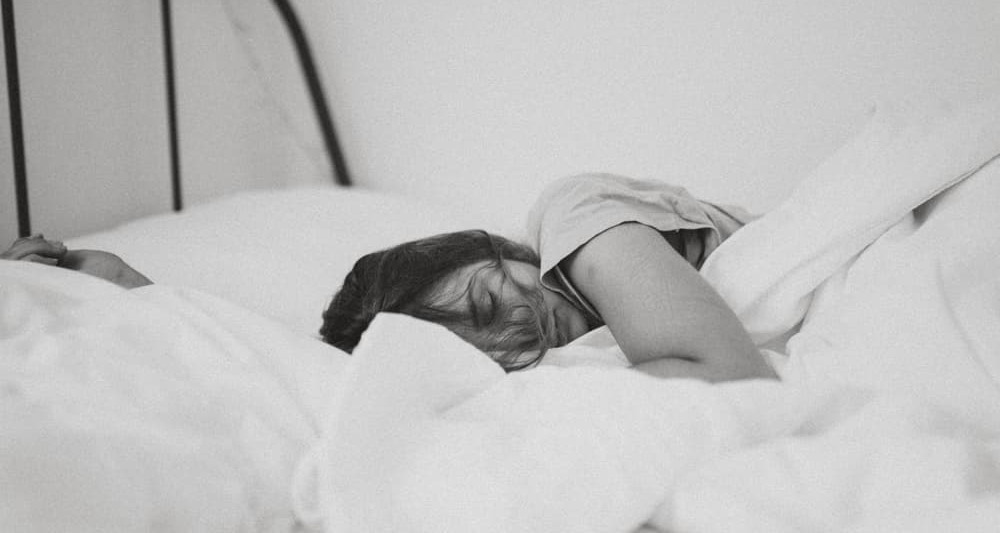
It is three am. I wake in panic. “Things are very wrong” is my first thought. My body is stiff. I am fully awake. There is no way that I’ll get back to sleep. I’m getting to know insomnia. I attempt to work with the fear. I try a Dogen-inspired cognitive reframe (a term psychologists use to describe ways of working with an unruly mind) to see if I can soothe myself. “Hmmm,” I try, being creative. “What if you don’t like this ingredient?” I pause. Something stirs within. “Yes, I don’t like this. I don’t like the taste of cancer. It is bitter. It is scary. It is painful.” There is something in the cadence of the words that reminds me of Dr. Seuss, “I do not like Green Eggs and Ham. I do not like them Sam I Am.” I realize that I’m having a bit of a tantrum. I don’t want my husband to be seriously ill. I do not want this suffering. I don’t like it. I didn’t choose this. But I don’t have a choice.
I have to smile at the conjunction of Dogen and Dr. Seuss, wondering if these two writers might enjoy each other. I begin to imagine a fantasy dinner party with the two men as guests. What would I serve? Surely Dogen is a vegan? The metaphor of cooking your life goes more deeply than I imagined. As Koshin reflected, “What is not food?” Soothed by this wisdom, and a touch of whimsy, I fall back asleep.
Using All the Ingredients
There is a Zen story where the teacher asks a student to clean up the garden. The overzealous student picks up leaves, weeds, stones, and moss and puts them in a pile of waste. The teacher then carefully sorts through the “trash,” picking out the stones to use for drainage, the weeds for compost, and the moss to retain moisture around delicate and fragile plants. There is a place and a use for everything.
I begin to reflect on what hidden treasures I can find in what feels like, as the Buddhists call it, a “hell realm.” Are there ingredients I could excavate from this chaotic mess? Could my heart open more to the suffering of others? Could I find more patience? More compassion? Deeper resilience? What if everything belongs, including illness, aging and death.
I think of the radical way Monet used color in his landscapes. At first, the splash of bright orange poppies seems discordant, but it isn’t. It wakes the eye up. “Keep your eyes open,” Dogen instructs us.
You Will Get Everything
Trudy Goodman, founder of Insight LA, tells a story about Seung Sahn, a Korean Zen Master. “If you embark on this path, you will get everything” he promised his students. And having a mind that wanted more, she was overjoyed. “Wow, I’ll get everything,” she smiled with anticipation.
However, many decades and much suffering later, she realized what he meant. “Oh, I’ll get EVERYTHING.”
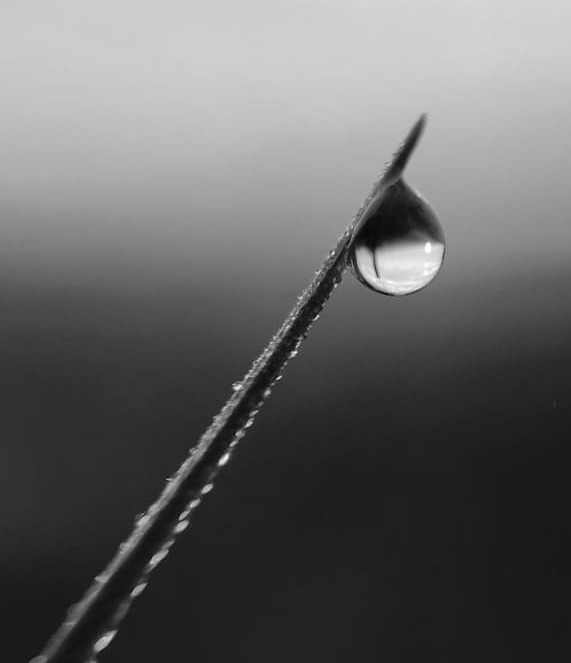 As I reflect on Dogen, I realize that he is talking about how to care for Everything—food, cooking, our bodies, kitchen utensils, tea bowls, relationships, work. He gently instructs us on how to make space for all the ingredients in life. Every detail is addressed. In his instructions in How to Cook Your Life he helps us wake up to the truth of impermanence, “like the dewdrop on a blade of grass along the path that vanishes quickly, who knows when this life will end,” (2005, p. 62). Yet what is so skillful is that first he grounds us in the reality, and joy, of daily life. It reminds me of what psychological theorists call “stage theory.”
As I reflect on Dogen, I realize that he is talking about how to care for Everything—food, cooking, our bodies, kitchen utensils, tea bowls, relationships, work. He gently instructs us on how to make space for all the ingredients in life. Every detail is addressed. In his instructions in How to Cook Your Life he helps us wake up to the truth of impermanence, “like the dewdrop on a blade of grass along the path that vanishes quickly, who knows when this life will end,” (2005, p. 62). Yet what is so skillful is that first he grounds us in the reality, and joy, of daily life. It reminds me of what psychological theorists call “stage theory.”
And this is the loving guidance that I need. The statistics for life expectancy with my husband’s cancer are not good, and I try not to dwell on an abstract number, but to focus on living fully in the present. This gentle, kind, but firm writing is refreshing. So many family, friends and colleagues say to me, “Be positive, you have to be positive!” as if this can alter the course of an illness. And when there isn’t a cure, the aftermath is often a sense of guilt. Did I not try hard enough? Was I not positive enough? Why set yourself up for more anguish or shame?
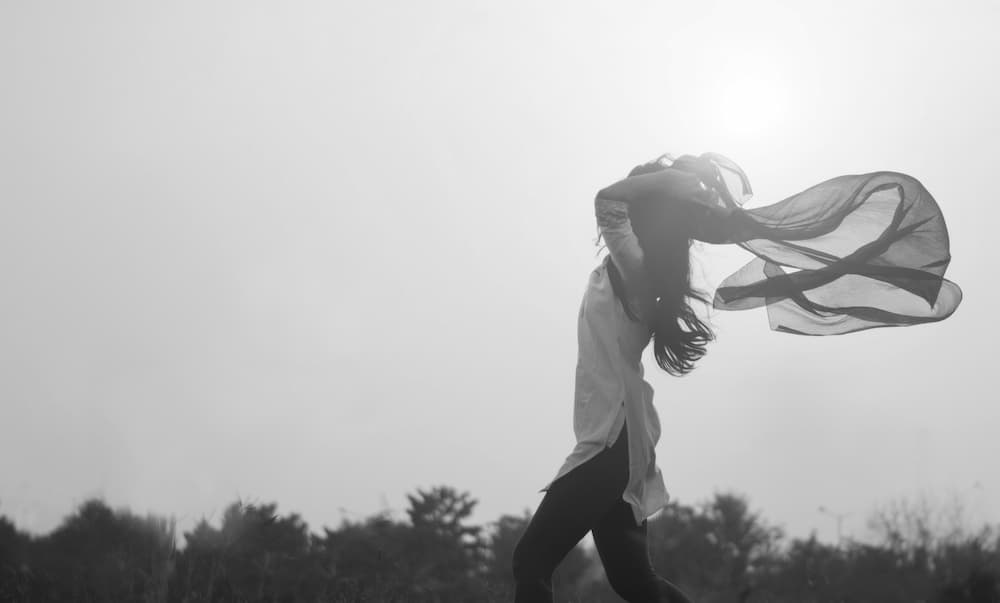
This World of Dew
About a year ago, I registered for a retreat at the Cambridge Insight Meditation Center on the day of the winter solstice. Who know, in December of 2019, how 2020 would unfold?
It was a cold, dark and miserable day, with a wet and heavy New England snow, the kind that clings to the trees and we call “heart attack snow.” The meditation hall was overheated so I practiced walking meditation outside in the snow. I walked by a birch tree that was weighed down with the snow. The first two times I passed it I didn’t really see it. But on the final walk of the retreat, after hours of sitting and walking, it had changed. I had changed. The branch was filled with raindrops, each glistening with radiant light, as if each contained a moon. I gasped. Before, all I had seen was the gloom.
I thought of a classic haiku by the poet Issa, written in the throes of grief after the death of his child. While there are many translations, my favorite is from writer Pico Iyer, who called it a “gasp” of a poem. “This world of dew is a world of dew, and yet, and yet…”
Now, a year later, I think of this as a koan (often called a “Zen riddle”) for my life. If I really pay attention, stop, listen and see deeply, what can I discover alongside the darkness and the grief?
“Our body is impermanent…”
As I write, my husband is in the ICU, where he will be for over two weeks undergoing a stem cell transplant to help keep him alive and hopefully put his cancer in remission. An infusion of chemotherapy will wipe out his bone marrow and cancerous cells, often causing a daunting array of side effects. “Our body is impermanent, our time difficult to hold on to,” (1996, p. 111). How to be with this, how to “settle” as Dogen would say? How to bear witness to a loved one who is seriously ill and still stay grounded and equanimous? This is the task that so many of us are faced with during Covid, as we watch dear friends, colleagues and family become ill and die. This is now our shared reality. As Dogen puts it we are all like “a fish in a dwindling pool of water,” (1996, p 111). Like it or not, this is the human condition, and each breath, he counsels, may be our last.
Dogen does not sugar coat anything, from food, to ethical behavior in difficult relationships, to the impermanence of life. Edward Espe Brown, who was the Tenzo (head chef) at Tassajara Zen Center, addresses this directly, “Why don’t you taste the true nature of each moment instead of trying to make everything taste just the way you want it to?… What, did you think you could add milk and sugar to each moment of your life to make it taste the way you want?” (2019, p. 13). Certainly food for thought.
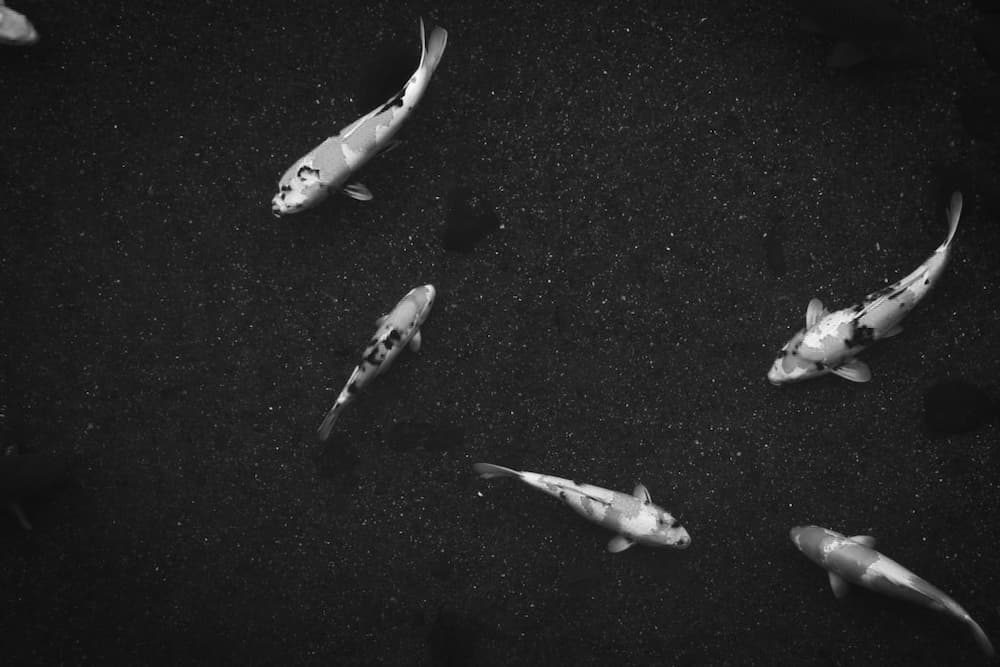
As Brown points out, the deeply resonant words of Dogen, when taken to heart, help us see deeply into the nature of things. They teach us how to work with what we have, not what we want.
When I started reading Dogen, I was attempting to curate and conceptualize grief. As I look back, although I would have denied it, I wanted to get rid of grief, illness and death, not drop into it and get to really know it.
I have taken liberties with Hafiz’s poem, “My Eyes So Soft.”

To conclude, I’m learning to sit in the midst of what the Buddhists call “heavenly messengers”—illness, old age, and death. The teaching is that these messengers are here to wake us up, not to turn away, but to be moved by all the ingredients of life. And this, as Dogen shows us, is the way of growing in wisdom, compassion and peace—no matter what arises.
References
Brown, E. 2019. The Most Important Point. Boulder: Sounds True.
Hafiz. 1999. The Gift. (translated by Daniel Ladinsky), cited in Brown, (2019, p. 166).
Leighton, T. D. & Okamura, S. trans. 1996. Dogen’s Pure Standards for the Zen Community. New York: State University of New York Press.
Uchiyama, Kosho. 2005. How to Cook Your Life: From the Zen Kitchen to Enlightenment. Boulder: Shambhala.
ABOUT THE AUTHOR
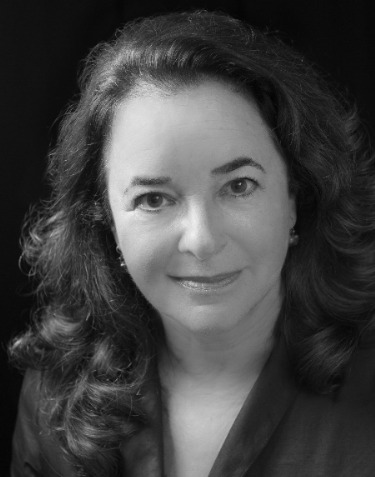 Susan M. Pollak, MTS, EdD, is a psychologist in private practice in Cambridge, Massachusetts. She is a longtime student of meditation and yoga who has been integrating the practices of meditation into psychotherapy since the 1980s. Dr. Pollak is cofounder and teacher at the Center for Mindfulness and Compassion at Harvard Medical School/ Cambridge Health Alliance and president of the Institute for Meditation and Psychotherapy. Dr. Pollak is a co-editor of The Cultural Transition; and a contributing author of Mapping the Moral Domain; Evocative Objects; and Mindfulness and Psychotherapy, 2nd Edition. She is the coauthor of Sitting Together: Essential Skills for Mindfulness-Based Psychotherapy and the author of the new book, Self-Compassion for Parents: Nurture Your Child by Caring for Yourself. She writes the popular blog, The Art of Now for Psychology Today, and is a frequent contributor to the Ten Percent Happier App. https://www.drsusanpollak.com/.
Susan M. Pollak, MTS, EdD, is a psychologist in private practice in Cambridge, Massachusetts. She is a longtime student of meditation and yoga who has been integrating the practices of meditation into psychotherapy since the 1980s. Dr. Pollak is cofounder and teacher at the Center for Mindfulness and Compassion at Harvard Medical School/ Cambridge Health Alliance and president of the Institute for Meditation and Psychotherapy. Dr. Pollak is a co-editor of The Cultural Transition; and a contributing author of Mapping the Moral Domain; Evocative Objects; and Mindfulness and Psychotherapy, 2nd Edition. She is the coauthor of Sitting Together: Essential Skills for Mindfulness-Based Psychotherapy and the author of the new book, Self-Compassion for Parents: Nurture Your Child by Caring for Yourself. She writes the popular blog, The Art of Now for Psychology Today, and is a frequent contributor to the Ten Percent Happier App. https://www.drsusanpollak.com/.
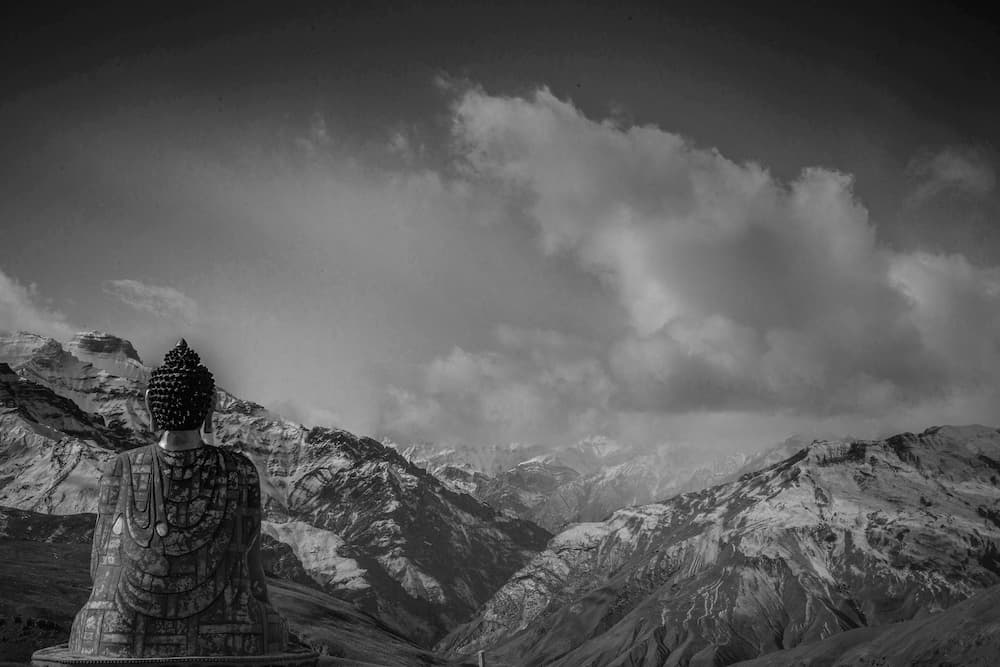
Posted by mkeane on Tuesday, July 27th, 2021 @ 5:32AM
Categories:
